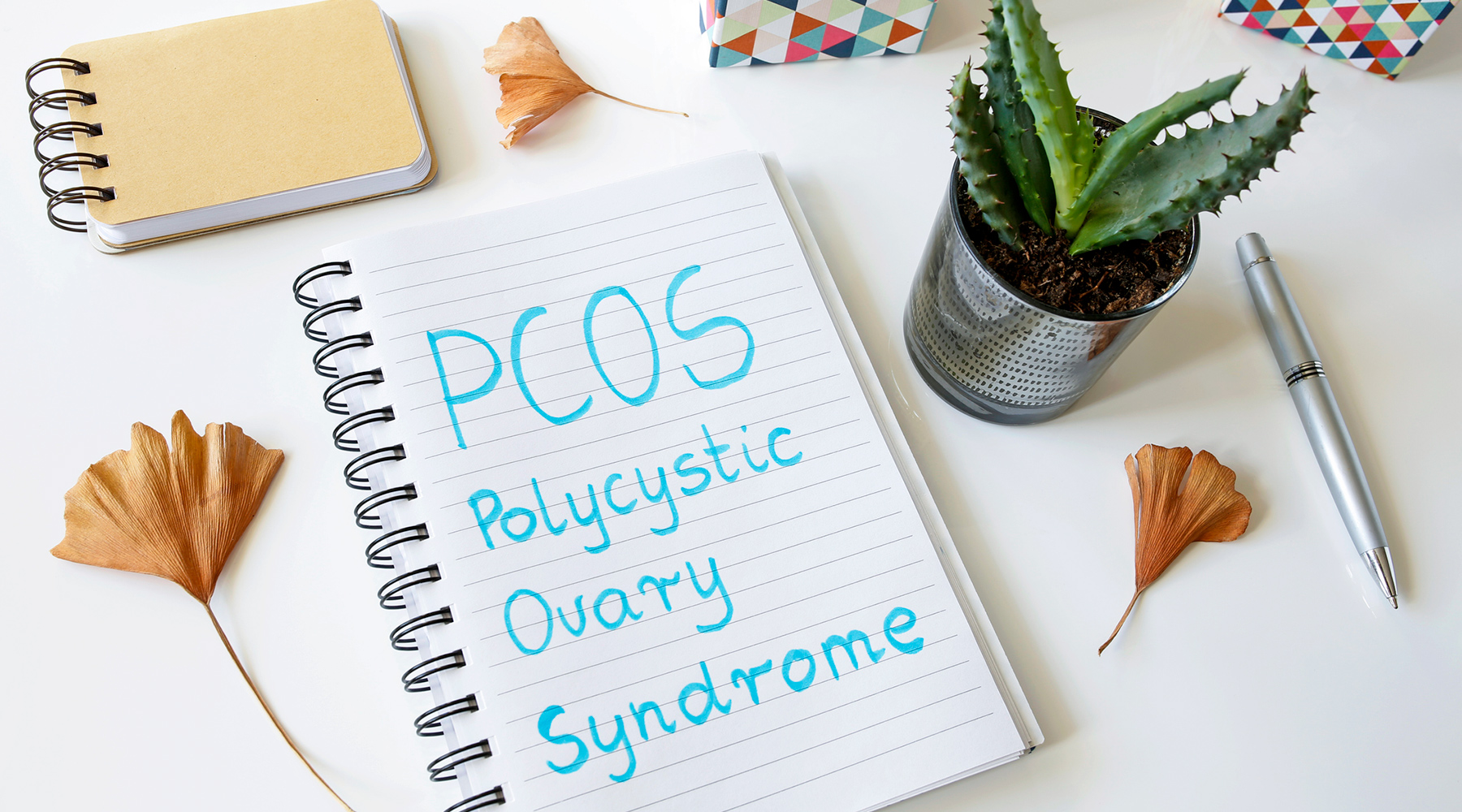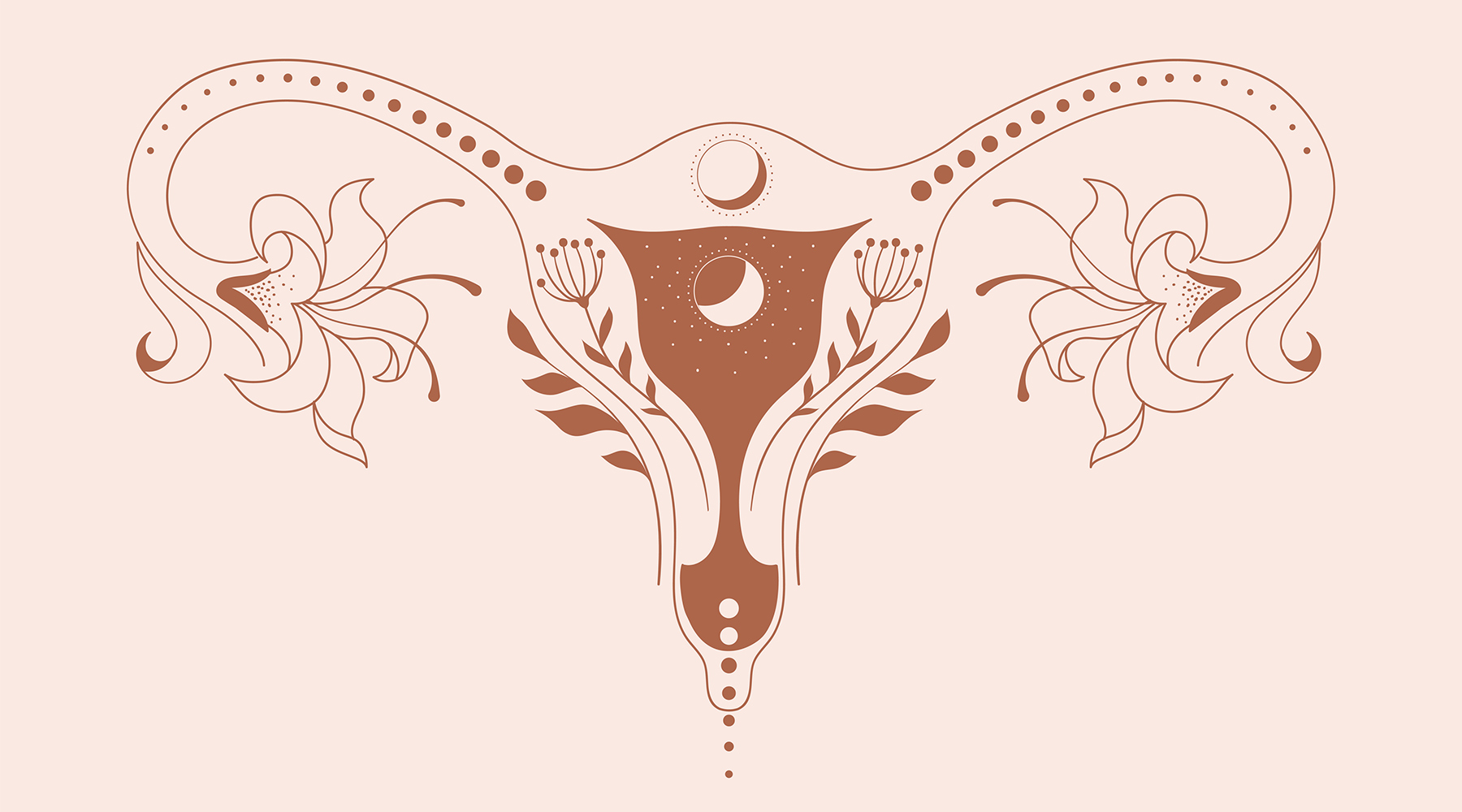Diagnosis and Assessment of PCOS
Polycystic Ovary Syndrome (PCOS) is the most common hormonal condition in women of reproductive age. While there is no known cure, dietary modifications, supplements, herbal medicines and pharmaceuticals can help to manage symptoms throughout a person’s lifetime. I have a special interest in seeing patients virtually (across Ontario) as well as in person at my Hamilton clinic who are looking for a more individualized approach to manage PCOS.
Common symptoms:
- Irregular/absent periods (this looks different depending on the person’s age)
- Acne
- Hirsuitism: excess dark hair growth on face and/or body
- Head hair loss
- Weight disturbances
- Blood sugar concerns (thirst, cravings, appetite changes etc.)
- Fertility concerns (difficulty conceiving, miscarriages)
Getting a proper diagnosis can be a challenge as PCOS can present differently across people. The most widely accepted diagnostic criteria requires 2 or more of the following:
- Hyperandrogenism (signs and symptoms of elevated testosterone and/or lab values)
- Menstrual irregularity (no period or infrequent periods <8 cycles/year)
- Polycystic ovaries on ultrasound
Labs to Consider
To get a thorough picture there are many other labs that your MD or ND may run.
- LH, FSH (in the first 5 days after period or 5-7 days after progestin withdrawal bleed)
- Estradiol
- Progesterone
- Cortisol
- Fasting Glucose, insulin, HbA1c
- Lipid Panel
- AMH
- Serum androgens (total T, free T)
- SHBG
- Vitamin D
- CBC + ferritin
- Inflammatory markers
Sex hormone changes in PCOS: Getting to know what is going on in your body
The hormonal changes that occur in PCOS are quite complex, in an attempt to explain things as simply as possible I have left out certain blood levels/pathways that are also influenced:
- Lutenizing hormone (LH) becomes elevated (there are two differing theories as to why this happens in the first place), LH is responsible for the production of testosterone at the level of the ovary and therefore results in elevated testosterone levels. Elevated circulating testosterone promotes androgenic symptoms such as excessive coarse hair growth on the face and body, acne and/or head hair loss.
- The imbalance of LH to FSH (follicle stimulating hormone) results in a lack of ovulation and irregular menstrual cycles.
- An increase in insulin production results in changes in blood sugar balance leading to weight gain, increased abdominal and organ fat production, thirst, cravings, and can also worsen the androgenic symptoms of PCOS due to it’s influence on SHBG and testosterone levels.

Natural Solutions for PCOS
How can a Naturopathic Doctor (ND)/Naturopath help?
As you have seen, PCOS is a highly complex condition and highlights the need for building a health care team that is knowledgeable on current research and able to support you for the long run. A Naturopath (ND) focused in PCOS is a valuable part of that team.
As a Naturopathic Doctor my goal is to listen to my patient’s story, how are they feeling emotionally and what their current health goals are in the short and long term. An important part of my job is to provide education on both natural and pharmaceutical interventions available while working collaboratively with my patient’s health team. I recognize that people’s health goals may differ depending on the hormonal time period of their life and always work within their comfort level. Are they focused on regulating their cycle and wanting to improve PCOS symptoms such as acne or hirsutism? Or are they most interested in conceiving and promoting a healthy pregnancy? These factors are always taken into consideration and a combination of dietary counseling, supplements, herbs and/or acupuncture treatment will be used to achieve these goals.
Dietary Strategies for PCOS
A healthy diet is the foundation for any patient that has PCOS. Studies show that weight loss can increase ovulatory function, improve menstrual regularity, reduce insulin resistance, improve mood and fertility outcomes. In my opinion, the best diet plan is the one you can stick to for the long run. Learning to listen to your body (hunger, satiety cues) and fuel your body with nutrient dense foods is going to have a profound long-term impact. It’s important that you feel satiated and still enjoy what you are eating so that changes are sustainable and feel positive. I work in a patient-centered model which means you are in control of the changes you make so that we are always working within your comfort level.
Acupuncture for PCOS
The beauty of Traditional Chinese Medicine (TCM) based acupuncture is that it is highly individualized and works with the body to restore balance. In TCM most cases of PCOS are viewed as imbalances in the Chinese liver, spleen and kidney organs. As a result of varying imbalances most patients experience what is called phlegm damp accumulation. Acupuncture points are chosen based on the patient’s current presentation and development of symptoms.
PCOS and Fertility
Traditional Chinese Medicine (TCM) based acupuncture is also a wonderful addition to any fertility plan. When it comes to PCOS and acupuncture, acupuncture points are highly focused on ovarian activity and promoting ovulation. In addition to acupuncture, naturopathic fertility treatments are focused on correcting nutritional deficiencies and using evidence based supplements that aim to promote a healthy pregnancy and prevent miscarriage. I always stress the importance of using the right form and doses of supplements and knowing what to do with these supplements once you fall pregnant.
Vitamin D for Fertility
One of the most common labs I am running for any fertility concern is vitamin D. It is highly under-utilized and when it comes to PCOS can help a wide array of symptoms when levels are optimized. There are various studies that demonstrate improved cycle regularity, improved mood, increased pregnancy rates and decreased miscarriage rates. It’s best to work with a health care provider on this– testing and follow up are important to achieve optimal vitamin D levels safely.
Disclaimer: Always consult a health care provider before starting any treatments. This post is not meant to substitute medical advice.
PCOS research:
De Melo, et al (2015). Pathogenesis of polycystic ovary syndrome: Multifactorial assessment from the foetal stage to menopause. Reproduction (Cambridge, England), 150(1), R11-24
Goodman, N. F. et al American Association of Clinical Endocrinologists (AACE), American College of Endocrinology (ACE), & Androgen Excess and PCOS Society (AES). (2015). Endocrine Practice: Official Journal of the American College of Endocrinology and the American Association of Clinical Endocrinologists, 21(11), 1291– 1300
Lass, N., et al (2011). Effect of lifestyle intervention on features of polycystic ovarian syndrome, metabolic syndrome, and intima-media thickness in obese adolescent girls. The Journal of Clinical Endocrinology and Metabolism, 96(11), 3533–3540.
Legro et al (2015). Randomized Controlled Trial of Preconception Interventions in Infertile Women With Polycystic Ovary Syndrome. The Journal of Clinical Endocrinology and Metabolism, 100(11), 4048–4058.
Vitamin D research:
Bacopoulou, F., et al. (2017). Vitamin D predictors in polycystic ovary syndrome: A meta-analysis. European Journal of Clinical Investigation, 47(10), 746–755.
Butts, S. F. et al., & Eunice Kennedy Shriver National Institute of Child Health and Human Development Reproductive Medicine Network. (2018). Vitamin D Deficiency is Associated with Poor Ovarian Stimulation Outcome in PCOS but not Unexplained Infertility. The Journal of Clinical Endocrinology and Metabolism.
Fatemi, F. et al. (2017). Role of vitamin E and D3 supplementation in Intra-Cytoplasmic Sperm Injection outcomes of women with polycystic ovarian syndrome: A double blinded randomized placebo controlled trial. Clinical Nutrition ESPEN, 18, 23–30.
Mogili, K. D.et al. (2018). Prevalence of vitamin D deficiency in infertile women with polycystic ovarian syndrome and its association with metabolic syndrome—A prospective observational study. European Journal of Obstetrics, Gynecology, and Reproductive Biology, 229, 15–19.
Pal, L et al. Reproductive Medicine Network. (2016). Vitamin D Status Relates to Reproductive Outcome in Women With Polycystic Ovary Syndrome: Secondary Analysis of a Multicenter Randomized Controlled Trial. The Journal of Clinical Endocrinology and Metabolism, 101(8), 3027–3035.


